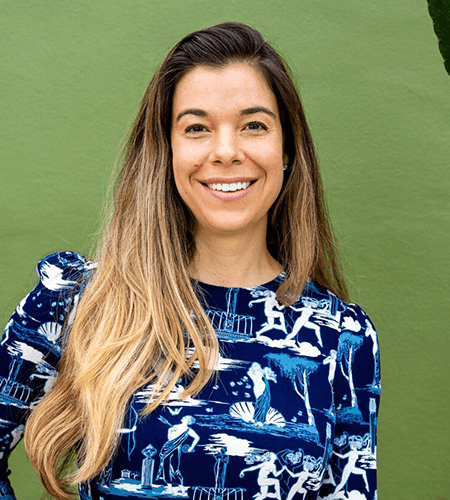
Dr. Rhonda Patrick
Cell Biologist & Podcast Host (FoundMyFitness)
Dr. Rhonda Patrick is a cell biologist and cofounder of FoundMyFitness, a compendium of resources focused on promoting healthspan, longevity, and overall fitness through nutrition, exercise, and lifestyle behaviors.
Dr. Rhonda Patrick Book Recommendations
List of Books
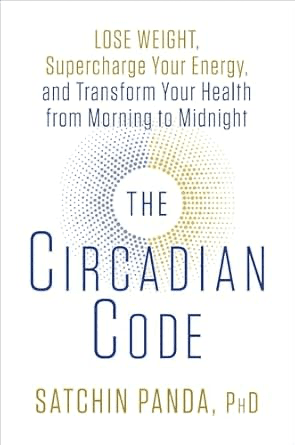
The Circadian Code
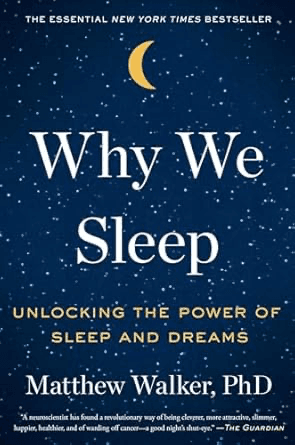
Why We Sleep
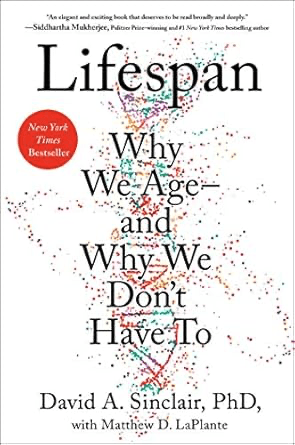
Lifespan
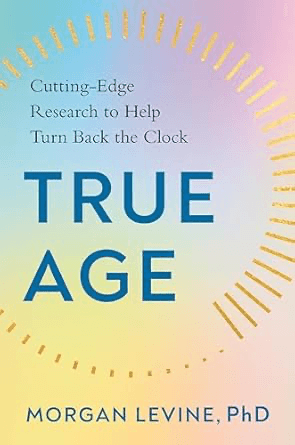
True Age
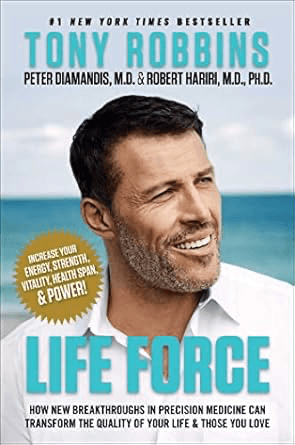
Life Force
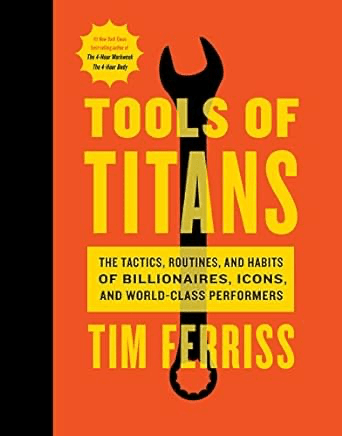
Tools of Titans
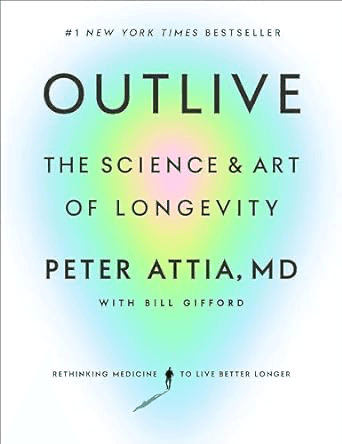
Outlive
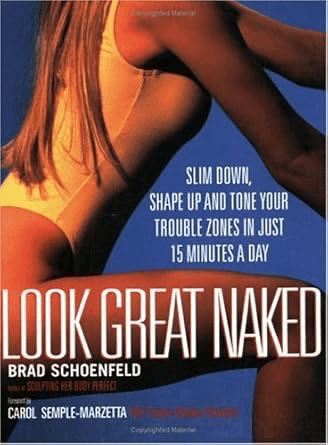
Look Great Naked
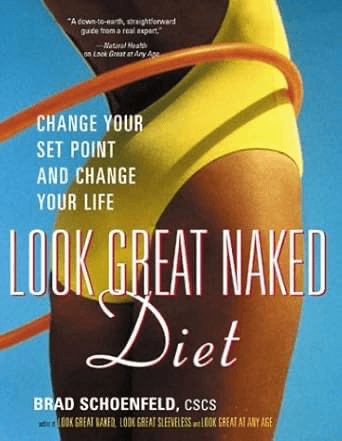
Look Great Naked Diet
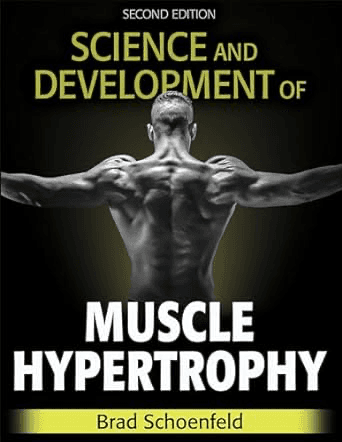
Science and Development of Muscle Hypertrophy
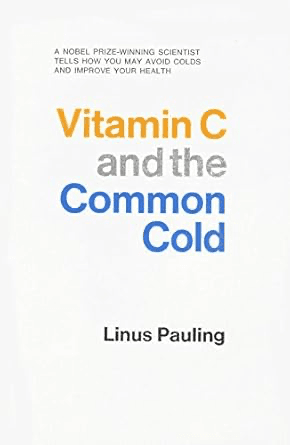
Vitamin C and the Common Cold
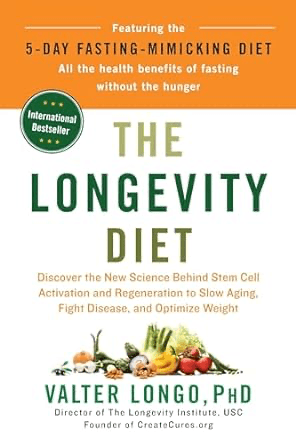
The Longevity Diet
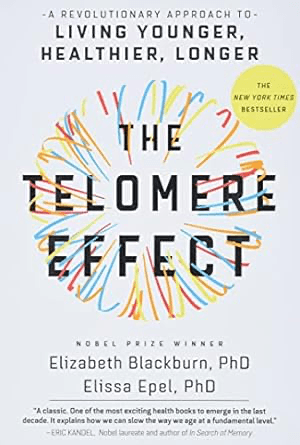
The Telomere Effect
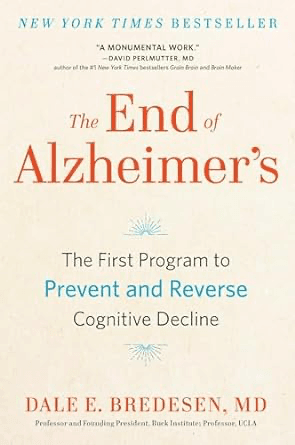
The End of Alzheimer's
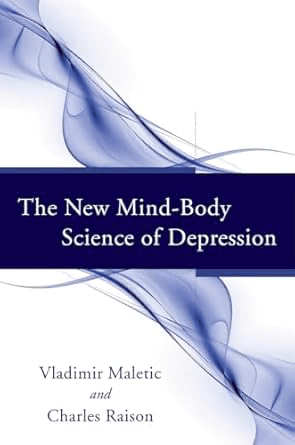
The New Mind-Body Science of Depression
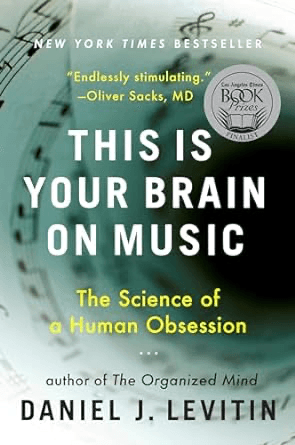
This Is Your Brain on Music
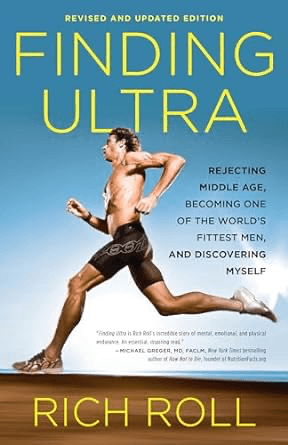
Finding Ultra
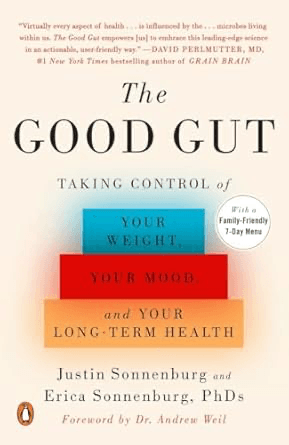
The Good Gut
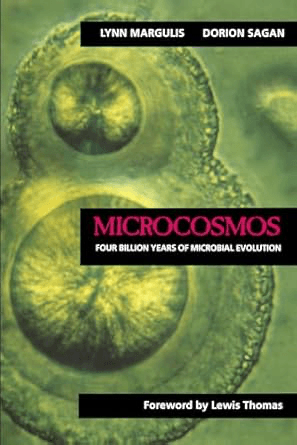
Microcosmos
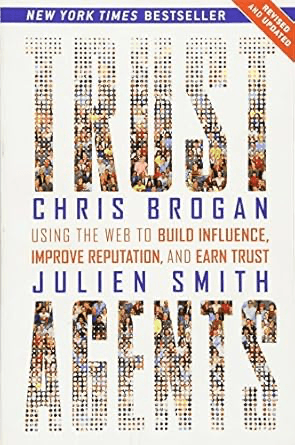
Trust Agents
Mentions

The Circadian Code
5 mentions
I've left a detailed YouTube comment.
You've mischaracterized the point I was trying to make. Your contention on the time difference is weirdly lazy. Finally, Dr. Panda's book as a meaningful contribution of COI is hysterical in light of your own patreon call-to-action.

Apr 24, 2022
Dr. Satchidananda ("Satchin") Panda is a professor in the Regulatory Biology Laboratory at the Salk Institute for Biological Studies. His work focuses on chronobiology, the study of the day-night cycles that drive the multifaceted activities of the human body, using genetic, genomic, and biochemical approaches. He is an expert on circadian rhythms and a pioneer in the field of time-restricted eating. A priority for Dr. Panda when designing his studies is to identify strategies that positively impact public health.
Circadian rhythms, the body’s 24-hour cycles of biological, hormonal, and behavioral patterns, modulate a wide array of physiological processes, including the body’s production of hormones that regulate sleep, hunger, and metabolism, ultimately influencing body weight, performance, and susceptibility to disease. Circadian rhythmicity may have profound implications for human healthspan.
When and how much we sleep, eat, or exercise (and these activities' effects on our health) are intrinsically linked to our circadian rhythms.

Jun 15, 2021
His new book is called the Circadian Code is really good and I highly recommend it! Much of what we know about the plethora of health benefits of time-restricted eating which is constraining our eating within a certain time window during the day, ranging between 8-12 hours, usually earlier in the day to align better with our circadian rhythm, comes from Dr. Panda's research. His book not only goes into detail about how when you eat is just as important as what you eat but it also touches on topics like the effect of exercise on sleep and circadian rhythm, what time of the day to exercise, how timing meals can improve exercise, how the gut and the gut microbiome are on a circadian rhythm and how time-restricted eating improves gut problems, and so much more!

Dec 13, 2018
Nick, tobacco causes DNA damage — better to just give it up! The time-restricted eating research is @satchinpanda.
He talks about it in-depth in these two great episodes.
- https://www.foundmyfitness.com/episodes/satchin-panda
- https://www.foundmyfitness.com/episodes/satchin-round-2

Jun 19, 2018
Pre-order for @SatchinPanda’s upcoming book “The Circadian Code” is also available on Amazon. Congratulations, Satchin!

May 11, 2018

Why We Sleep
4 mentions
Great tips in the episode and notes ranging from practical to sci-fi like tDCS, wet suits & rocking beds. Practical: Maintaining a dark, cold room in the 60s, appropriate timing for your chronotype, avoiding light at night/getting bright light early. Watch ep. & get Matt's book!

Mar 1, 2019
highly recommended book

Feb 28, 2019
Matthew Walker, Ph.D., is a professor of neuroscience and psychology at the University of California, Berkeley, and serves as the Director of the Center for Human Sleep Science. Formerly, Dr. Walker served as a professor of psychiatry at the Harvard Medical School. Walker's research examines the impact of sleep on human health and disease. One area of interest focuses on identifying "vulnerability windows" during a person's life that make them more susceptible to amyloid-beta deposition from loss of slow wave sleep and, subsequently, Alzheimer's disease later in life. Dr. Walker earned his undergraduate degree in neuroscience from the University of Nottingham, UK, and his Ph.D. in neurophysiology from the Medical Research Council, London, UK. He is the author of the New York Times best-selling book Why We Sleep: Unlocking the Power of Sleep and Dreams.

Feb 28, 2019
The figures pictured come from a study shared with me by Dr. Matt Walker (author of Why We Sleep) is from a trial that showed that simulating a light/dark cycle in a neonatal intensive care resulted in better outcomes for pre-term infants in terms of oxygen saturation, feeding, weight gain and ultimately leaving the NICU.

Dec 9, 2018

Lifespan
3 mentions
David A. Sinclair, PhD, is a professor in the Department of Genetics at Harvard Medical School and co-director of the Paul F. Glenn Center for the Biological Mechanisms of Aging. He is the co-founder of the journal Aging, where he serves as co-chief editor.
Dr. Sinclair's work focuses on understanding the mechanisms that drive human aging and identifying ways to slow or reverse aging's effects. In particular, he has examined the role of sirtuins in disease and aging, with special emphasis on how sirtuin activity is modulated by compounds produced by the body as well as those consumed in the diet, such as resveratrol. His work has implications for human metabolism, mitochondrial and neurological health, and cancer.
Dr. Sinclair obtained his doctoral degree in molecular genetics at the University of New South Wales, Sydney, in 1995. Since then, he has been the recipient of more than 25 prestigious honors and awards and in 2014 was named as one of TIME Magazine’s 100 most influential people in the world. Dr. Sinclair recently authored the book Lifespan: Why We Age – and Why We Don't Have To.
Aging – a process that began the moment we were born – is generally thought of as inevitable. Although aging isn't a disease, it is the primary risk factor for developing many chronic diseases, including cardiovascular disease, Alzheimer's disease, and cancer. In turn, many of these conditions hasten the aging process, setting up a vicious cycle of cellular damage and systemic loss of function. A growing field of research, led by a few innovative scientists proposing radical, contrarian ideas, suggests that aging might not be as inevitable as once thought.
In this episode, Dr. David Sinclair discusses exciting new findings in the field of aging research, with special emphasis on the roles of sirtuins, resveratrol, and NAD+.

Nov 6, 2019
The caloric restriction mimetic resveratrol has become well-known as one of the many contributions of @davidasinclair to the aging field. This a great moment to mention his new book, “Lifespan: Why We Age―and Why We Don't Have To,” that just came out!

Sep 16, 2019
Dr. David Sinclair’s book, “Lifespan: Why We Age―and Why We Don't Have To,” came out just this week! Check out the book and his recent podcast with @joerogan.

Sep 16, 2019

True Age
2 mentions
Congratulations, @DrMorganLevine! You can find her book (now out).
A deep dive on Morgan’s fascinating work can also be found in our recent podcast together on the FoundMyFitness channel.
Episode 72 https://twitter.com/agingdoc1/status/1521124390796251136

May 3, 2022
Thank you for sharing the episode, David! (You, too, @ydeigin!)
It was a great privilege having @DrMorganLevine come on to talk about some of the most exciting advances in the field of aging.

Apr 29, 2022

Life Force
2 mentions
New podcast episode with @PeterDiamandis and @TonyRobbins on their new book Life Force, GRAIL cancer screening blood test, longevity escape velocity, the $101M Age reversal XPrize, space travel, gene therapy, organogenesis, and more!
https://youtu.be/6OyynalpLLI

Mar 9, 2022
Dr. Peter Diamandis is a serial entrepreneur and founder of XPRIZE, a non-profit organization that designs and conducts global competitions that incentivize the development of technological breakthroughs that propel humanity toward a better future.
Tony Robbins is an entrepreneur, bestselling author, philanthropist, and business strategist. He provides business and life coaching to millions of people worldwide through his audio programs, educational videos, and live seminars.
Diamandis and Robbins are a dynamic duo, having paired up with co-author Dr. Robert Hariri to write Life Force, a best-selling book that describes breakthroughs in precision medicine and health technologies that can help people live longer, healthier, more fulfilling lives – in the very near future.

Mar 9, 2022

Tools of Titans
2 mentions
I'm late to the party with @tferriss book! I enjoy Tim's writing and have for quite a while, but… https://www.instagram.com/p/BNwyr-clhIN/

Dec 8, 2016
I enjoy Tim's writing and have for quite a while, but his most recent book is basically just a large (very large) collection of his notes cut down to the most interesting bits from all of his podcast guests. Some of which have been super awesome (ahem, page 6), which means that there's really something in there for everyone since it covers a pretty large number of topics. Also, the foreword is actually written by @schwarzenegger which is pretty cool.

Dec 8, 2016

Outlive
1 mentions
Just received Dr. Peter Attia’s new book, OUTLIVE, and I’m thrilled! Over the years, I’ve come to greatly appreciate Peter’s careful, methodical approach to human health. It’s a privilege that we can tap into his unique expertise in this new way. Thank you, @PeterattiaMD!

Mar 28, 2023

Look Great Naked
1 mentions
Dr. Brad Schoenfeld is a professor at Lehman College, CUNY, in the Bronx, New York. His research primarily focuses on muscle adaptations to strength training and muscle hypertrophy. He has published more than 300 articles about exercise science and sports nutrition, making him a leader in these fields. Dr. Schoenfeld began his career as a competitive bodybuilder and personal trainer, giving him a unique practical lens through which he communicates his academic expertise.

Dec 6, 2022

Look Great Naked Diet
1 mentions
Dr. Brad Schoenfeld is a professor at Lehman College, CUNY, in the Bronx, New York. His research primarily focuses on muscle adaptations to strength training and muscle hypertrophy. He has published more than 300 articles about exercise science and sports nutrition, making him a leader in these fields. Dr. Schoenfeld began his career as a competitive bodybuilder and personal trainer, giving him a unique practical lens through which he communicates his academic expertise.

Dec 6, 2022

Science and Development of Muscle Hypertrophy
1 mentions
Dr. Brad Schoenfeld is a professor at Lehman College, CUNY, in the Bronx, New York. His research primarily focuses on muscle adaptations to strength training and muscle hypertrophy. He has published more than 300 articles about exercise science and sports nutrition, making him a leader in these fields. Dr. Schoenfeld began his career as a competitive bodybuilder and personal trainer, giving him a unique practical lens through which he communicates his academic expertise.

Dec 6, 2022

Vitamin C and the Common Cold
1 mentions
In 1970, double Nobel Prize laureate Dr. Linus Pauling published Vitamin C and the Common Cold, in which he posited that consuming large amounts of vitamin C could reduce the duration and severity of the common cold. The book effectively put vitamin C on the nutritional map, establishing it as a cure-all in the collective minds of the lay public. Nearly a decade later, Pauling published clinical data suggesting that high dose intravenous administration of vitamin C showed promise as a supportive treatment for cancer as well as a strategy to mitigate the side effects of chemotherapy. Pauling's work was heavily criticized in the scientific community, however, due to a lack of proper controls and standardization. Since then, countless studies have tested Pauling's theories about vitamin C, colds, and cancer (and many others), and a substantial body of evidence has emerged, identifying critical roles for vitamin C in immune function, cardiovascular and respiratory health, cognitive development and preservation, and many other aspects of human health.

May 12, 2020

The Longevity Diet
1 mentions
To establish an optimal diet for longevity, scientists are pursuing various avenues of investigation, including basic and clinical research as well as epidemiological and centenarian studies. By consolidating these approaches, researchers aim to better understand how one's eating pattern affects aging. For example, if basic research reveals that a particular diet is best for longevity, yet no long-lived populations around the world eat this way, then one may choose to be cautious about this diet. In this clip, Dr. Valter Longo discusses his new book "The Longevity Diet" and how his fasting-mimicking diet can treat or prevent several age-related diseases.

Sep 5, 2019

The Telomere Effect
1 mentions
Elissa Epel, PhD, is a Professor in the Department of Psychiatry at the University of California, San Francisco. She serves in many roles, including director of the Aging, Metabolism, and Emotions Center; director of the Consortium for Obesity Assessment, Study, & Treatment, (COAST); Associate Director of the Center for Health and Community; president-elect of the Academy of Behavioral Medicine Research; and steering council member for the Mind & Life Institute.
Dr. Epel's research centers on the mechanisms of healthy aging and the associations between stress, telomere length, addiction, eating, and metabolic health. She and her colleagues are currently collaborating in clinical trials investigating the effects of self-regulation and mindfulness training on cellular aging, weight, diet, and glucose control.
In 2017, she co-authored the New York Times best-selling book The Telomere Effect with Nobel Prize winner Dr. Elizabeth Blackburn. Click here for an Amazon affiliate link to The Telomere Effect.

Jun 10, 2019

The End of Alzheimer's
1 mentions
Dale E. Bredesen, M.D., is a professor of neurology at the Easton Laboratories for Neurodegenerative Disease Research at the David Geffen School of Medicine at the University of California, Los Angeles (UCLA).
Dr. Bredesen’s laboratory focuses on identifying and understanding basic mechanisms underlying the neurodegenerative process and the translation of this knowledge into effective treatments for Alzheimer’s disease and other neurodegenerative conditions. He has collaborated on the publication of more than 220 academic research papers.
He and his colleagues have identified several subtypes of Alzheimer’s disease and has developed ReCODE – reversal of cognitive decline – a protocol that offers a new approach to treatment that has reversed symptoms in patients with mild cognitive impairment and Alzheimer’s disease.
Dr. Bredesen received his undergraduate degree from the California Institute of Technology and his medical degree from Duke University. He served as Resident and Chief Resident in Neurology at the University of California, San Francisco (UCSF). He was the Founding President and CEO of the Buck Institute for Research on Aging and Adjunct Professor at UCSF.

Oct 1, 2018

The New Mind-Body Science of Depression
1 mentions
Dr. Raison and his colleagues have demonstrated some promising evidence that a technique called whole-body hyperthermia has the potential for real-world clinical efficacy as a tool in the fight against major depression.
In Dr. Raison’s randomized, double-blind study published in JAMA in 2016, it was shown that a single session of whole-body hyperthermia (core body temperature was elevated to 38.5 C) produced a significant antidepressant effect in people with major depressive disorder compared to those who received a sham control. The improvements were apparent within a week of treatment and persisted for six weeks after treatment.
But what is responsible for this antidepressant effect? In a previous episode of the podcast, we learned that sauna use seems to share many qualities of exercise, including improvements in arterial compliance, elevations in heart rate that reach levels you might see in aerobic exercise. Moreover, sauna use has been shown to be associated with reductions in heart-related mortality, dementia and more. The impact of heat stress on the behavior of our immune system through transient alterations in the cytokines expressed by our tissues may be one more area where we can see some overlap.

Mar 19, 2018

This Is Your Brain on Music
1 mentions
@danlevitin Just ordered your book: "This Is Your Brain on Music." I'm super pumped to understand why my brain performs better with music!

May 10, 2016

Finding Ultra
1 mentions
This podcast features Rich Roll. Rich is an author, a podcaster, as well as founder and first person to complete the EPIC5 Challenge. The EPIC5 challenge involves completing 5 Full Iron Distance triathlons on 5 Hawaiian islands in under a week. Rich has also been a repeated top finisher in the Ultraman World Championships in Hawaii, which is a three-day, 515km (320-mile) annual endurance race held on the Big Island of Hawaii. The race is divided into three stages over three days: The first is a 6.2 mile (10-km) ocean swim, followed by a 90-mile (145-km) cross-country bike ride, with vertical climbs that total 6,000 feet. Stage two is a 171.4-mile (276-km) bike ride, with total vertical climbs of 4,000 feet. Finally, stage three is a 52.4-mile (84-km) double marathon. Each stage must be completed within 12 hours or less.
You can read about Rich's journey to Ultraman competitor in his book, "Finding Ultra: Rejecting Middle Age, Becoming One of the World's Fittest Men, and Discovering Myself".

Jan 24, 2016

The Good Gut
1 mentions
Dr. Justin Sonnenburg is an associate professor of microbiology and immunology at Stanford and Dr. Erica Sonnenburg is a senior research scientist in the Sonnenburg lab. Erica and Justin both research the interaction between diet and the trillions of bacteria in the gut (specifically the colon) and how this impacts the health of the host (which, in this case, is a laboratory research mouse).
In addition to their work in the lab pushing the boundaries of human knowledge on the gut, Erica & Justin have also published a book entitled The Good Gut: Taking Control of Your Weight, Your Mood, and Your Long-term Health.

Jan 3, 2016

Microcosmos
1 mentions
@JayMutzafi Thank you! There's actually a book by that name written by Sagan's son & widow.

May 19, 2014

Trust Agents
1 mentions
Thanks @buckDaddy! I'm very excited about my @chrisbrogan book, I heard it was good!

Sep 21, 2009
Disclaimer: The information presented on this website are for informational and entertainment purposes only. Please consult a medical professional when considering changes to your routine, supplements, etc.
Additionally, please note that some product links in our content are affiliate links. While not all routines & products are officially endorsed by the individuals mentioned, we strive to ensure that the information we provide is accurate and up-to-date.
